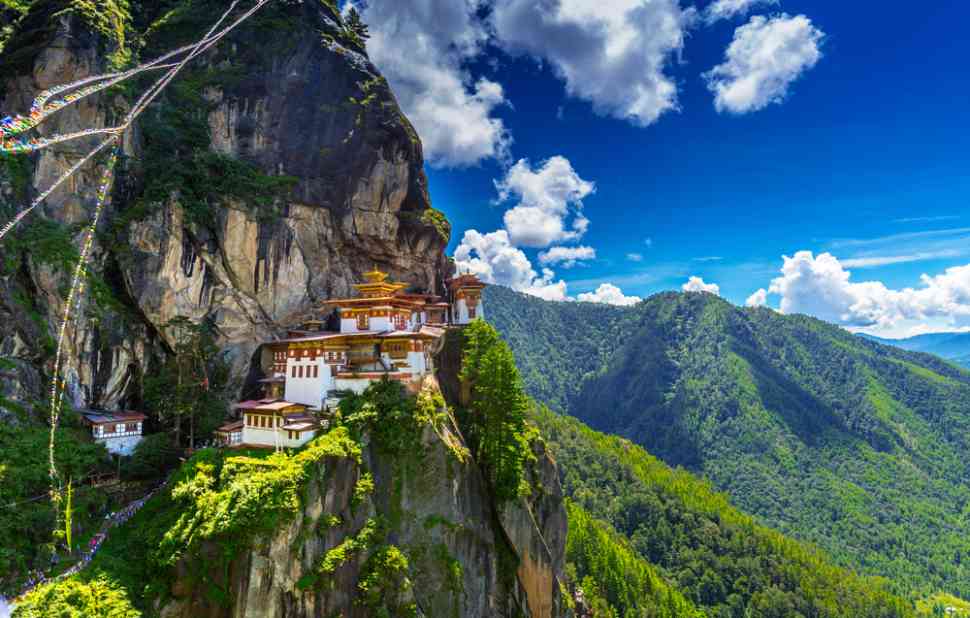The Rich Life And Wild Landscapes Of Bhutan In The Himalayas

Bhutan is a country bordering Chine in the North; in all other directions, it has borders with India. The capital of Bhutan is Tibu, while Funchholing is the financial center. Geopolitically, Bhutan is located in South Asia and is the second-smallest state in the region, having more population only than the Maldives. Historically, Bhutan’s independence has endured for centuries, while the country has never been colonized in its history. Bhutan has become known for its rich life and for its unique wild landscapes. Without a doubt, it is a country worth visiting, especially because it is not as ”touristy” as the other countries in the area. In this article, we will travel together and give you various ideas about what you can see and do when you visit.
-
How to organize your trip
To get to Bhutan, you just need a plane to Delhi or Kolkata airport in India or Bangkok in Thailand. From there, you can continue with a Royal Bhutan Airlines flight to Paro Airport. Something you should know about organizing your trip to Bhutan is that you cannot access Bhutan unless you are accompanied by a tour operator. This is quite important when you organize your trip because without a tour operator you will have a serious problem entering the country, even as a tourist. Also, as extreme as it may sound, the government imposes on each tourist to pay about 180 USD per day for each day of stay in the country. This price includes food, accommodation, and travel within Bhutan, as well as a tour guide. -
Must do & see
When you visit Bhutan, there are certain sights and attractions worth seeing. In particular, it is worth visiting Tigers Nest. It is a locality that first appeared by Guru Rinpoche; he is supposed to be the Buddha born of the Lotus and the one who founded Tibetan Buddhism. This monument dominates between the wild peaks of Paro and the 6-mile trek. Going among dense cedars and elevations is demanding, but it is worth it. Also worth visiting is Punakha Dzong, the most impressive of the local administrative centers, or Dzong as they are called. In particular, these are castles-monasteries. Punakha Dzong stands between two rivers like a sleeping elephant. The central courtyards, prayer rooms, wooden painted structures, and the craftsmanship of the monks are unique. Equally impressive is the Dzong in Paro, one of the most famous and remarkable examples of local architecture. Finally, it is worth visiting Dochula Pass. There, you have to climb to 2 miles in a spectacular location-pass with wonderful views of the Himalayas and tie your prayer flags in the air, hoping that one day your prayers will be heard, a romantic mission that will challenge your endurance. -
Gastronomic choices in Bhutan
The gastronomy of Bhutan is mainly based on Indian cuisine, although it has many influences from China. The main ingredient in their food is chili, so before ordering, it would be good to clarify how spicy you want your food to be. Rice, lentils, and wholemeal flour are basic foods of Bhutanese cuisine, as are beans and peas or chickpeas. There, they cook with various vegetable oils: peanut oil, sesame oil, and sunflower oil. Regarding the meat, the ”Kings” in their kitchen are chicken and sheep. However, fish is not a species that is consumed in large portions with the exception, of course, of coastal areas where fish is a main source of proteins.
This is what it’s like to live a rich life in the wildest landscapes. A trip to Bhutan will excite you mainly because it is a peaceful place where the philosophy of Buddhism has affected the lives of the locals. So if the idea of a trip to Bhutan is tempting for you, you just have to book a ticket and fly your way there.
Bring the best of the CEOWORLD magazine's global journalism to audiences in the United States and around the world. - Add CEOWORLD magazine to your Google News feed.
Follow CEOWORLD magazine headlines on: Google News, LinkedIn, Twitter, and Facebook.
Copyright 2025 The CEOWORLD magazine. All rights reserved. This material (and any extract from it) must not be copied, redistributed or placed on any website, without CEOWORLD magazine' prior written consent. For media queries, please contact: info@ceoworld.biz








